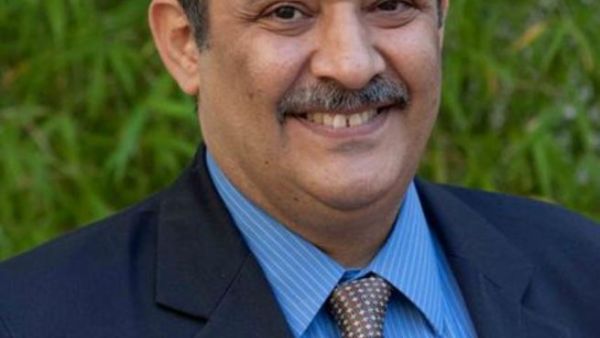Egyptian entrepreneurs win award for outstanding innovation at Intel Global Challenge

A team of entrepreneurs from Egypt, has won 3rd prize at the 7th annual Intel Global Challenge at UC Berkeley (formerly the Intel+UC Berkeley Technology Entrepreneurship Challenge), for NanoDiagX of Egypt, which used gold nanoparticles to develop a virus test that can detect Hepatitis C in less than an hour, and at one-tenth the cost of current commercial tests. The team won $10,000 third-place prize for their innovation. First prize when to for China’s Gaitu, a one-stop image processing platform that matches Chinese consumers with designers who add special effects, provide image-sharing services and turn edited photos into art or merchandise. Second place and $20,000 was awarded to Maxygen-mobile DNA of Russia for inventing a low-cost, portable DNA test solution that can be used at the point of care to quickly identify thousands of infectious diseases, genetic predispositions and hereditary conditions.
The Intel Global Challenge at UC Berkeley is a global business plan competition that encourages student entrepreneurs and rewards innovative ideas that have the potential to have a positive impact on society. Local winners from 22 countries globally including Denmark, Egypt, Israel, Jordan, Lebanon, Poland, Portugal, Russia, Turkey and Yemen participated in the competition. The Intel Foundation will award a total of $100,000 in cash prizes.
The Egypt team NanoDiagX is led by Dr. Hassan M. E. Azzazy (coordinator), Tamer M. Samir, Sherif Mohamed Shawky, Mai M. H. Mansour and Ahmed H. Tolba. It had occupied the first place in the 7th Arab Technology Business Plan Competition 2011, organized by the Arab Science and Technology Foundation (ASTF) in partnership with Intel Corporation and in collaboration with the United Nations for Industrial Development "UNIDO”. This regional competition had 50 projects representing 50 Arab entrepreneurs, from 15 countries.
The hepatitis C virus (HCV) infects some 200 million people worldwide. Early identification and treatment of infected patients is critical to reducing transmission of the disease, but conventional detection of active HCV generally requires two tests. Using gold nanoparticles, NanoDiagX has developed the HCV nanogold test, which detects the disease in less than an hour at one-tenth the cost of current commercial tests. NanoDiagX expects that the nanogold test will notably improve global efforts to combat the spread of HCV, particularly in parts of the world where infection rates are high, but resources limited. The company also plans to adapt its technology for detection of other infectious agents such as tuberculosis and cancer biomarkers.
“Intel has a strong commitment to fostering student innovation around the globe,” said Shelly Esque, president of the Intel Foundation and vice president in Intel’s Legal and Corporate Affairs group. “Through our education programs, we’ve seen firsthand how empowering entrepreneurs positively impacts individuals, communities and economies. The Intel Global Challenge at UC Berkeley helps students develop lifelong innovation skills to identify problems and develop solutions they will use throughout their careers.”
The competition, held at the Haas School of Business at UC Berkeley, drew 28 teams from more than 20 countries. Founded in 2005, the Intel Global Challenge at UC Berkeley is a joint project of Intel and the UC Berkeley Lester Center for Entrepreneurship. The project is designed to motivate young entrepreneurs to develop innovative technologies that solve real world challenges, build viable business models and move that technology out of university labs and into the market.
This year, the finalist teams presented business plans that reflect groundbreaking work in such fields as healthcare, technology, energy conservation and disaster management. These plans included ultraviolet radiation detection, a coconut-based packaging alternative, and an advanced fire protection and detection system. Representatives of more than 12 leading venture capital firms from the San Francisco Bay Area served as judges and provided valuable feedback to the teams.
In addition, three special awards, worth $5,000 each, were presented to Intel Global Challenge teams earlier this week. The Social Innovation Award went to NextDrop of Berkeley, Calif., for its water management solution that helps people in emerging markets better predict water availability in communities. aQuainnova of Thailand won the Emerging Impact Award for the team’s Genovex business tool, which can provide early detection of viral diseases in shrimp. The Young Innovator Award was given to the entrepreneurs from team BUCKY’o’Zun of Denmark for their inexpensive chemical compound that when added to sun lotions, anti-aging creams, paints, among other products, provides 99.99 percent protection against all forms of UV radiation.
Background Information
Intel Corporation
Intel is a world leader in computing innovation. The company designs and builds the essential technologies that serve as the foundation for the world’s computing devices.






